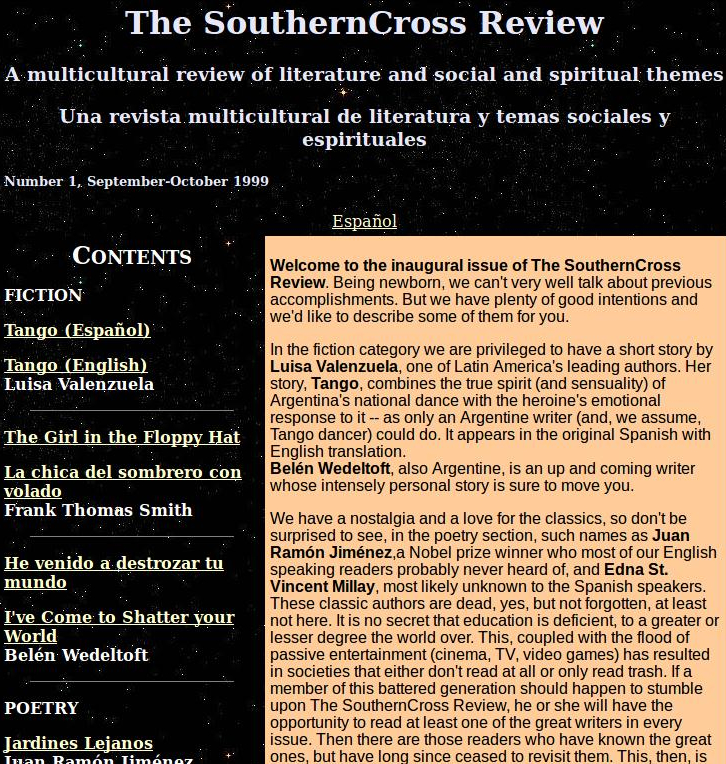Michelle Obama

Michelle Obama (née Robinson; born January 17, 1964) is an American lawyer and author who was the first lady of the United States from 2009 to 2017. She is married to the 44th President of the United States, Barack Obama. She is the first African-American First Lady of the United States.
Raised on the South Side of Chicago, Illinois, Obama is a graduate of Princeton University and Harvard Law School. In her early legal career, she worked at the law firm Sidley Austin where she met Barack Obama. She subsequently worked in non-profits and as the associate dean of Student Services at the University of Chicago as well as the vice president for Community and External Affairs of the University of Chicago Medical Center. Michelle married Barack in 1992, and they have two daughters.
Michelle campaigned for her husband's presidential bid throughout 2007 and 2008, delivering a keynote address at the 2008 Democratic National Convention. She returned to speak for him at the 2012 Democratic National Convention. As first lady, Michelle Obama served as a role model for women and worked as an advocate for poverty awareness, education, nutrition, physical activity, and healthy eating.
The Obama family lived on Chicago's South Side, where Barack taught at the University of Chicago Law School. He was elected to the US Senate in 2004. Throughout her husband's 2008 campaign for US President, Michelle Obama made a "commitment to be away overnight only once a week – to campaign only two days a week and be home by the end of the second day" for their two daughters.
During her early months as First Lady, Michelle visited homeless shelters and soup kitchens. She also sent representatives to schools and advocated public service.
She advocated for her husband's policy priorities by promoting bills that support it. She hosted a White House reception for women's rights advocates in celebration of the enactment of the Lilly Ledbetter Fair Pay Act of 2009 Pay equity law.
Michelle Obama is one of the most loved and popular women in the United States, and possibly in the world. During this election year there has been talk of her running as Joe Biden's vice-president. If this were to happen, it would almost insure Biden's victory as well as providing the country with an intelligent, fair-minded, socially conscious African-American woman in a position of political power. An added factor is Biden's advanced age, which awakens the possibility that he will be a one-term president, thereby making Michelle the heir apparent, so to speak. She has repeatedly affirmed, however, that she will never run for political office. However, this is an extremely complicated time for the United States and the world, when Michelle Obama is needed firstly to insure than in 2021 Trump is out and Biden is in, and secondly to put herself in a position to serve humanity and the planet.
Don't forget to so we can advise you when the next issue is ready!
You can find us under the Southern Cross in the Traslasierra Valley, Province of Córdoba, Argentina. Visitors always welcome. Just follow the sign that reads: La Cruz del Sur.
Frank Thomas Smith, Editor
Editor's Page
The corona virus – masks, social distancing, global warming, virtual sex, team Intelligence and egotistical reincarnation

Dear Readers,
Every once in a great while I receive an anonymous submission. Usually, after reading the first sentence, I delete it. This time I admit that the wordy subject, which seems to indicate that the author is getting the world's problems off his/her chest with one long gasp, intrigued me, so I read it all. I have no idea who wrote it. I answered to the gmail address from which it came, but it bounced. That means that whoever wrote it created a gmail account for the sole purpose of submitting the essay, then deleted the account in order to retain anonymity. Anyway, after debating with my conscience, I decided to publish it just in case. You be the judge...
Continue reading
Current Events
Viruses in the Dynamics of Life
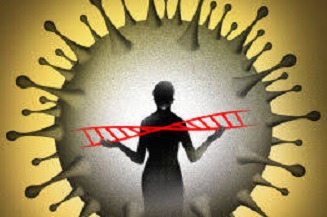
This article grew out of a series of conversations among researchers at The Nature Institute during the current COVID-19 pandemic. In a matter of just a few months, an acute illness identified in a Chinese hospital in Hubei province has made its way around the world and brought viruses to the forefront of public consciousness. Beyond the many discussions we have had about this serious pandemic and the societal responses to it, we felt the need to give more attention to viruses as such. These “invisible germs” present a real riddle. What is an appropriate way to think about them? We have been struck by the narrow way viruses are typically described—as enemies that attack us. Not alone among government leaders, President Emmanuel Macron of France declared his country to be “at war” with the virus. Is this an adequate way of viewing viruses and infectious diseases? We had a sense that it is not... Continue reading
Avenger Planet:
Is the Covid-19 Pandemic Mother Nature’s Response to Human Transgression?

As the coronavirus sweeps across the planet, leaving death and mayhem in its wake, many theories are being expounded to explain its ferocity. One, widely circulated within right-wing conspiracy circles, is that it originated as a biological weapon developed at a secret Chinese military lab in the city of Wuhan that somehow (perhaps intentionally?) escaped into the civilian population. Although that “theory” has been thoroughly debunked, President Trump and his acolytes continue to call Covid-19 the China Virus, the Wuhan Virus, or even the “Kung Flu,” claiming its global spread was the result of an inept and secretive Chinese government response. Scientists, by and large, believe the virus originated in bats and was transmitted to humans by wildlife sold at a Wuhan seafood market. But perhaps there’s another far more ominous possibility to consider: that this is one of Mother Nature’s ways of resisting humanity’s assault on her essential life systems...
Continue
Know thyself -- or Not

In 430 BC, the second year of its war with Sparta, the legendary democracy of Athens in ancient Greece was struck by an unknown infectious disease. The Athenians first suspected that the Spartans had poisoned their reservoirs. As it turned out, though, their undemocratic adversary wasn’t to blame. According to the historian Thucydides, the plague came from faraway Ethiopia and entered the city by ship. Since Athens had built its empire with naval power, it was perhaps grimly fitting that its greatest strength would prove in that moment to be its signal weakness.
The plague spread quickly. “At the beginning, the doctors were quite incapable of treating the disease because of their ignorance of the right methods,” wrote Thucydides. “In fact mortality among the doctors was the highest of all, since they came more frequently in contact with the sick.”
Continue
Features
An Ominous day ... but not only
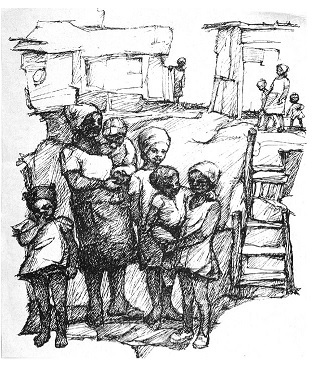
Theme: violence
Just as I got up in the morning my glasses fell and broke! It was a strange day in other ways as well. Instead of going directly to the favela or to the office as usual, I had been invited to a television studio downtown. A podium discussion about violence in Sao Paulo was planned. As the representative of a "grass roots project" - our social project in the favela Monte Azul, I was to express ideas about causes of violence and how to avoid it at the round table.
The theme of violence by young people is being discussed everywhere, because brutality and cruelty in schools, on the streets, in "reform" schools and youth prisons is on the increase. On the bus to work violence is subject number one: everyone has a story to tell, how he or she was assaulted, how drugs are sold openly in schools, how young people in prison revolt and cut off another prisoner's head, how someone goes to the bank to pick up his salary and is mugged on leaving, how another has his running shoes ripped off - all of course accompanied by threats with guns, usually by drug addicts...
Continue reading
Murder Most Foul

It was a dark day in Dallas, November '63
A day that will live on in infamy
President Kennedy was a-ridin' high
Good day to be livin' and a good day to die
Being led to the slaughter like a sacrificial lamb
He said, "Wait a minute, boys, you know who I am?"
Of course we do, we know who you are!
Then they blew off his head while he was still in the car
Shot down like a dog in broad daylight
Was a matter of timing and the timing was right
You got unpaid debts, we've come to collect
Continue reading and listening
We Shall Overcome

We shall overcome, we shall overcome,
We shall overcome someday;
Oh, deep in my heart, I do believe,
We shall overcome someday.
The Lord will see us through, The Lord will see us through,
The Lord will see us through someday;
Oh, deep in my heart, I do believe,
We shall overcome someday.
Continue reading and listening
What the Aztecs Can Teach us About Happiness and the Good Life
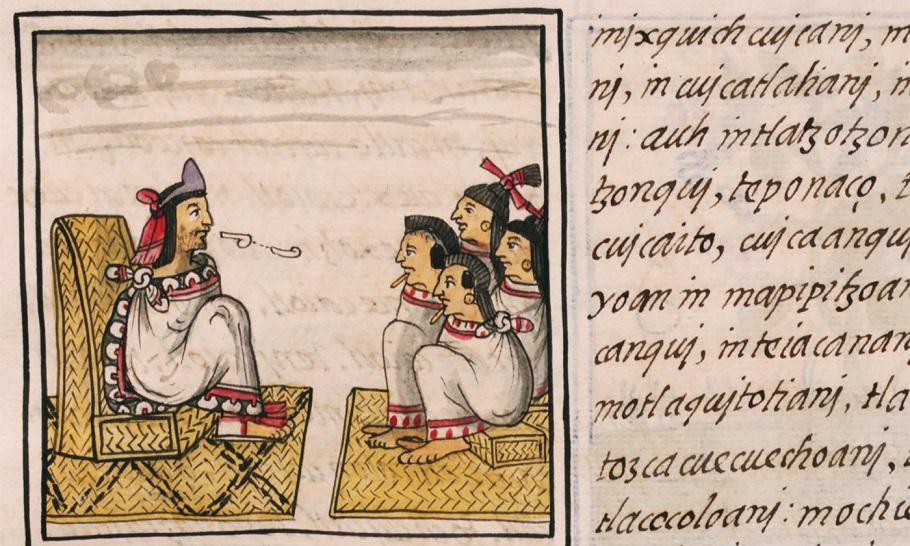
In the spring semester of the school year, I teach a class called ‘Happiness’. It’s always packed with students because, like most people, they want to learn the secret to feeling fulfilled.
‘How many of you want to be happy in life?’ I ask. Everyone raises a hand. Always. ‘How many of you are planning to have children?’ Almost everyone raises their hand again.
Then I lay out the evidence that having kids makes most people more miserable, and that their sense of wellbeing returns to its former levels only after the last child has left the house. ‘How many of you still want children?’ I say. Maybe it’s just obstinacy, but the same people who wanted to be happy still put their hands up. My students reveal something that the pre-Columbian Aztecs knew well. You should stop searching for happiness, because that’s not really what you want. We don’t plan our lives around elevated emotional states. What we want are worthwhile lives, and if we have to make sacrifices for that, then so much the worse for ‘happiness’.
Continue reading
Children's Corner
The Mystery of the Headless Ghost
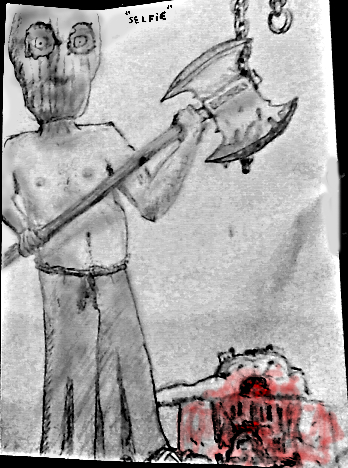
This story is my dog Duque's fault. If Duque hadn't found those footprints...But it would be better to start at the beginning.
It was a Monday and I was on my way to school. That day was very good in school. The English teacher was absent so we had almost an hour extra for recreation break. When I got home Duque wasn't there. I looked inside and outside, on the back porch and the front patio. Then I went out on the street to look for him. Finally I found him in the abandoned house next door barking at something. I called him but he didn't come. I whistled and he didn't come. I rolled on the floor and he didn't come. How strange, I thought. Whenever I roll on the floor he comes running and jumps on top of me. I went back home and asked my dad to let me put a leash on Duque. My dad doesn't like to put a leash on him. I went back to the abandoned house where I finally got the leash on him and brought him home.
Continue reading
Español: El Misterio del fantasma sin cabeza
Science
Comparison of Various Cosmological Principles
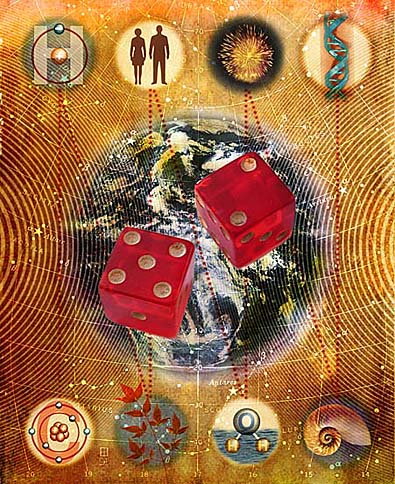
Some cosmological principles can be grouped into families. The most influential in the history of cos
mology is the family based on the Copernican Principle. As we have seen (cf. 4.03), the models fulfilling the Generalized Copernican Principle are a subset of the models fulfilling the Genuine Cosmological Principle. Thus, the area of validity of the former is contained in the area of the latter. Some models fulfilling the Generalized Principle meet the stricter requirements of the Perfect Principle, which possesses a still smaller area of validity. In the same relation of subordination is the Lucretian Principle (5.07) to the Perfect one, and - if one would accept them - the Generalized Perfect one (5.10) to the Lucretian one, and the Fully Perfect one to the Generalized Perfect one. Of course, the entire family falls into the area of validity of Mach's Principle (6.06). Here we can also add the Homogeneity Principle, which is situated between the Genuine and the Generalized Copernican principles...
Continue reading.
Education
The economy of a Waldorf School"
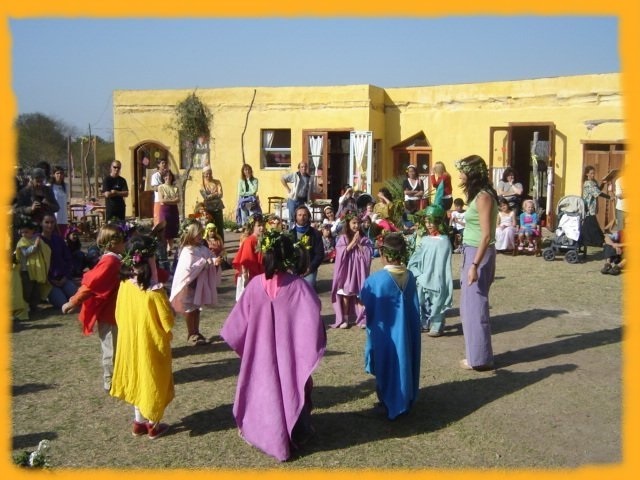
A Waldorf school is a fundamentally altruistic organization and as such is loosely subject to three development phases – a foundation or pioneer phase, a bureaucratic (in a positive sense) one, and an integration phase. The first phase is difficult, but also the most enjoyable in many ways: few people are involved, who get to know each other well, they are not only friendly, they often become friends. They frequently innovate, whether rightly or wrongly. A mistake, if recognized as such, can be immediately corrected.
The second phase is when the organization becomes too large to continue feeding on the founders' intuition. In other words, efficient but, hopefully, not rigid or dogmatic. The name of the third phase, “integration”, may imply that all problems have been solved and there's smooth sailing from now on. No, integration – very difficult to achieve – means having sufficient flexibility to adapt to new necessities without sacrificing fundamental principles, accepting healthy tension but avoiding destructive conflict. And so on ...
Continue
Español
Fiction
Quarantined
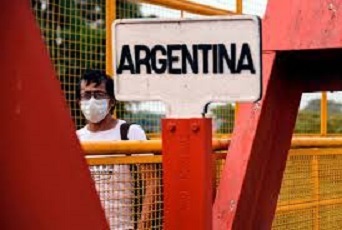
If I were to tell you that Matthew Jones feels bewitched, bothered and bewildered I would be putting it mildly. He is sitting in an apartment with its spectacular view of Palermo Park in Buenos Aires wringing his hands and pulling his hair. Actually, he doesn't feel bewitched because he doesn't believe in witches, but bothered and bewildered, yes.
He left Salt Lake City by car the previous day, arriving in Chicago's O'Hare airport in plenty of time for American's flight to Miami, from where he flew to Buenos Aires. He couldn't have flown from Salt Lake City because he would have been recognized at the airport by everyone. But nobody recognized him in Chicago, Miami or – least of all – Buenos Aires.
Once settled in first class, he had a glass of champagne, dinner with Chilean tinto and a sleeping pill. He slept almost all the way to Argentina's international airport at Ezeiza, Buenos Aires. He had no checked baggage, only a backpack carry-on, so he was one of the first through customs and immigration. The immigration agent frowned at the Argentine passport Jones showed him, with the name Matheu Tomás Jones. He answered before he was asked. He had no exit stamp from Argentina because the passport was new, issued by the Argentine consulate in Washington, where he had been living for several years. The agent shrugged, stamped him in and said, Bienvenido a casa, Señor Hoe-ness.”
Continue
Story from "The Red Book"

“Captain, this boy is worried and very agitated
by the quarantine that has been imposed upon us in this port.”
“What worries you, boy? Don't you have enough food?
Don't you sleep enough”?
“It's not that, my Captain. I can't endure not being able
to go ashore and not being able to embrace my family.”
“And if you could go ashore and you were infected,
could you bear the guilt of infecting someone
who couldn't resist the disease?”
“I would never forgive myself. For me, though, this plague is an invention.”
“It could be. But what if it isn't?”
Continue reading
Español
The Vision
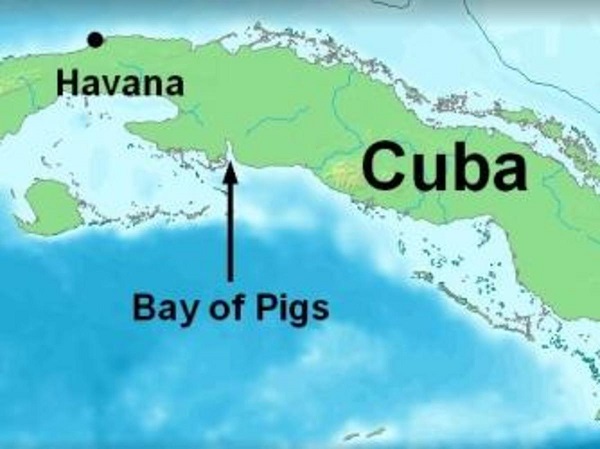
I don’t even know when it happened but my visual field is truly strange. And those shapeless and dark, white, green and blue phantoms fluttering down that tunnel. Strange too, those dark dancers. Surely as rare a vision as the Drucina Championi butterfly at the top of the volcano Atatenango. Crazy recollection in such a moment. At 3796 meters protruding out of Guatemalan earth butterflies fluttering and dancing in the cold breeze. There for an instant before vanishing in a flash into the fire of red hot lava. Distorted phantasmal figures. Again, I try to blink. In vain. My eyes are as fixed as the absurd theater of white and green and blue contortionists appearing in and fading out of my tunnel vision. If they would only stop their jerking around like Italian marionettes so that I can concentrate on this ridiculous situation. But wait! What was that? Patience! It will return. A deformed red shape is drawing near. It’s hovering as if searching for my ghosts. Is it Death? That balloon figure with bulging eyes leaning toward me... Continue reading
Anthroposophy
The Economic Insights of Rudolf Steiner

"The whole Earth, considered as an economic organism, is the social organism. Yet this is not being taken into account anywhere. It is precisely because of this error that the science of political economy has grown so remote from reality. People want to establish principles that are meant to apply only to an individual cell. Hence, if you study the French theory of economy, you will find it is constituted differently from the English or German or other economic theories. But as economists, what we really need is an understanding of the social organism in its totality..." Rudolf Steiner
Exactly ninety-eight years ago Rudolf Steiner delivered his course on economics in Dornach, Switzerland. He gave fourteen lectures over a period of two weeks. Reading Steiner’s largely ignored economic lectures today, one becomes aware that most of his concepts are still as fresh and counter to the mainstream as they were in 1922...
Continue reading
Esoteric Lessons for the First Class - Recapitulation 6

Today we will once again begin with the words which contain the fundamental exhortation to the human being, which resound to him from all the kingdoms of nature and from all the spiritual hierarchies, if he has the necessary sensibility to seek his own being, and also exhort him to recognize, through his own being, the world in its true spiritual nature. They resound from all that interweaves and lives in the earthly depths, in water and air, in warmth and light, from what lives in the mountains and springs, in rocks, in the plants and animals, in the physical human form, in human souls, in human spirits, what lives in the residents of the stars, in the spiritual hierarchies – it resounds thus: O man, know thyself ...
Continue reading
On the Road to Damascus

Ever since the early days of Christianity it has been the custom to draw a distinction between the festivals of Christmas and of Easter in that the Christmas festival has been made immovable, having been fixed at a point of time a few days after the 21st of December, the winter solstice, whereas the day of the Easter festival is determined by a particular constellation of the stars, a constellation of the stars which unites earth and man with the worlds beyond the earth. To-morrow will be the first full moon of spring and upon this full moon will fall the rays of the springtime sun, for since the 21st of March the sun has been in the sign of spring. When, therefore, men on earth celebrate a Sunday — a day, that is, which should remind them of their connection with the sun-forces — when the Sunday comes that is the first after the full moon of spring, then is the time to keep the Easter festival. Easter is thus a movable festival. In order to determine the time of the Easter festival, note must be taken each year of the constellations in the heavens...
Continue
Poetry
The Expatriate & Parting

The problem with most foreign lands
is that they're much too far away,
like the bleachers in Ebbett's used to be
before the debacle of technology.
Also, either they're terribly bland,
foggy, windy and damp, or,
if southerly, downright dangerous,
where bullets fly and sunscreen 21
can't ward off the assassin sun.
Why, then, does he dwell,
ducking and frying, far from the patria
he tearfully invokes over juice of the grape
at a sidewalk table of the corner taberna?
Continue
Oriphiel – The Angel of Power

I am the Wind!
I am the Wind which descends from the Heavens...
My caresses fly towards the blessed trees of life;
my kisses touch the sharpness of their leaves,
and where hidden sadness is born,
where tears are shed,
my love will spread its wings
in consolation.
Continue
Books
Toward a Threefold Society
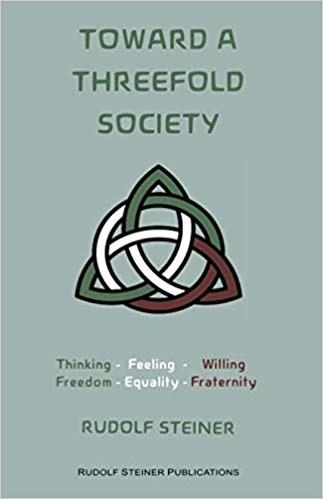
Toward a Threefold Society was written in 1919 for the German-speaking peoples of central Europe. It deals with the social problems of that time and suggests solutions. The question therefore arises: Is this book still relevant today, in the twenty-first century, for a worldwide readership?
In order to answer this question, let us first look at the book's very last paragraph:
"One can anticipate the experts who object to the complexity of these suggestions and find it uncomfortable even to think about three systems cooperating with each other, because they wish to know nothing of the real requirements of life and would structure everything according to the comfortable requirements of their thinking. This must become clear to them: either people will accommodate their thinking to the requirements of reality, or they will have learned nothing from the calamity and will cause innumerable new ones to occur in the future..."
Continue.
Anthroposophical Fantasies

Anthroposophy, also known as Spiritual Science, is not known for fantastic literature, or for fiction of any kind. So how can stories with titles like Life on Mars or The Girl in the Floppy Hat, To Hunt a Nazi or The Occult Inquisitor qualify as anthroposophical. They do not … until now.
Therefore this book is groundbreaking.
You may smile at times, even laugh; other stories may cause a lump in your throat, perhaps even a tear or two.
The beginning of the cover story, A Streetcar Named Karma, describes how a young German officer ready to fight for his country during the First World War meets a Czech girl in a Prague streetcar. The meeting appears to be accidental, caused by the couple being knocked over the the streetcar's traffic antics.
They go together to a lecture that evening by an charismatic Austrian named Rudolf Steiner, who turns out to be a truly fascinating personality who speaks convincingly and reassuringly about such things as reincarnation and karma...
Continue
Search SCR.org


